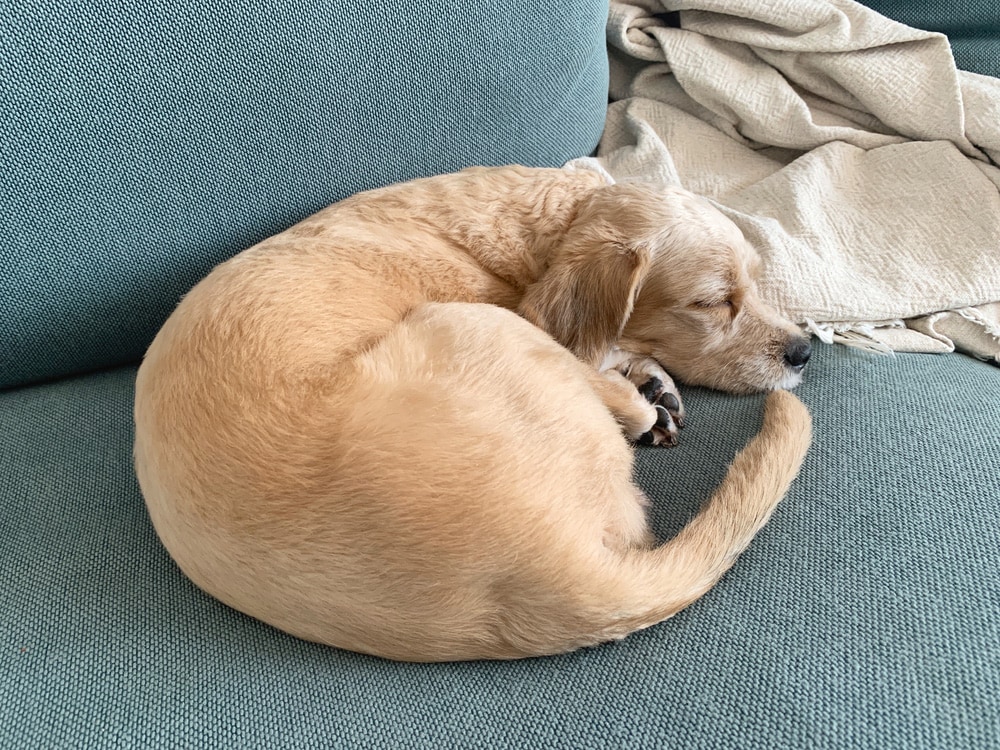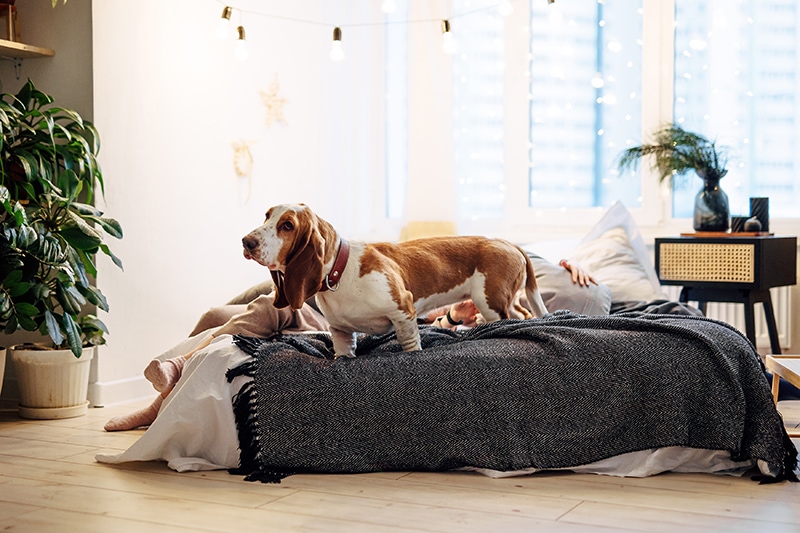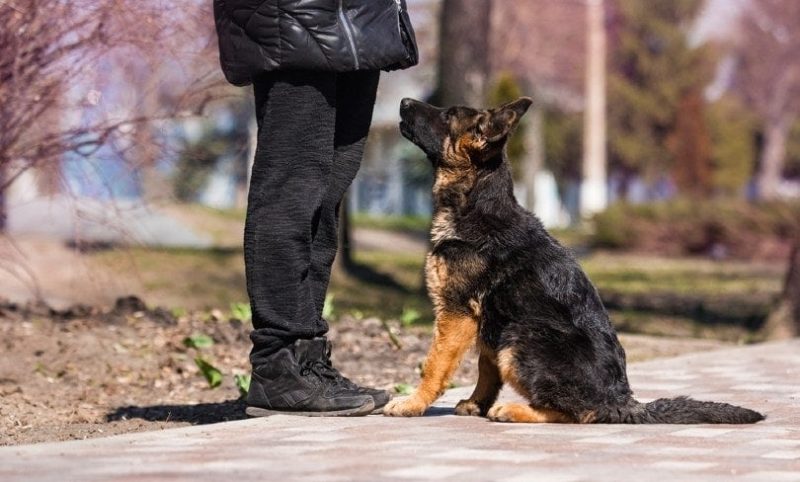Why Is My Dog Barking in Their Sleep? 4 Possible Vet-Reviewed Reasons

By Misty Layne
Updated on

Having a dog in the home is fun, and it seems as though they’re always doing one thing or another to keep us on our toes! Something you might have noticed your pup doing is barking in their sleep. It’s pretty adorable when that happens, but you might wonder why they’re doing it, or if it means something is wrong with them.
So, why is your dog barking in their sleep? The first thing to know is that this is a common behavior in canines. There are a handful of reasons why this is happening, but the main reason this occurs is because your four-legged friend is dreaming! What are the other reasons for sleep barking? Keep reading to find out!
The 4 Reasons Dogs Bark in Their Sleep
1. Dreaming
The most common reason for sleep barking is dreaming! Yep, just like us, our four-legged friends have dreams (and nightmares) because they go through stages of sleep that are similar to our own. Humans dream when they enter the REM (rapid eye movement) part of the sleep cycle, and since dogs also spend part of their sleep time in REM sleep, they do the same. Not only will they dream, but you might even see them doing things such as moving their legs as if they’re running. Chances are your pup is dreaming about running around the dog park or chasing a squirrel when they start barking in their sleep!

2. REM Sleep Behavior Disorder
A very uncommon reason a dog might bark in their sleep is REM sleep behavior disorder (RBD). This sleep disorder results in canines exhibiting unusual behavior and lots of motion during their sleep. During REM sleep, muscle atonia occurs (the muscles become temporarily paralyzed, so you can’t move around).
However, muscle atonia doesn’t set in for dogs with RBD, so a dog might fully act out what they’re dreaming, from running around chasing after something to playing with toys to barking. This can be dangerous both for the dog and the people in the home, as the dog could accidentally hurt themselves or others while doing the dog equivalent of sleepwalking. It has been suggested that RBD is more common in dogs that have recovered from tetanus. If you think your pup might be experiencing this sleep disorder, talk to your vet!
3. Anxiety
Anxiety is another potential cause of sleep barking. This is more likely to be the reason if there’s been some sort of significant change in your dog’s life recently, such as switching homes or a new person moving into the house. Anxiety in dogs can manifest in many ways, and having anxiety-induced bad dreams that involve barking may be one of those ways. If your pup is experiencing anxiety, you can help them by speaking with their veterinarian. There are many ways in which anxiety can be managed or treated, whether via medication or training strategies.

4. Medication
A rare cause of sleep barking is a side effect of medication. If your pup has started a new medication recently and is suddenly barking in their sleep when they didn’t before, then there’s a good chance it’s because of the medication. Some medications, such as opioid pain medications like Tramadol, can have temporary side effects such as disorientation and altered behavior.
If you think a medication is causing your dog to bark in their sleep, talk to your vet about it. Barking in their sleep isn’t dangerous for your pet, so their vet may want to continue with the medication, but if your pup’s barking is keeping you awake at night, you might be able to get them switched to something different.
What Do I Do if My Dog Is Sleep Barking?
Don’t do anything! Sleep barking is a common behavior, so the odds are slim that there’s anything wrong with your dog if they are doing this (and if something is wrong, like RBD, you’ll see other signs). Plus, think about how disoriented you are when someone wakes you up in the middle of a dream; your pup will experience the same thing if you wake them up. Even if it seems your pet is having a nightmare, it’s best to leave them be. The exception is if they are at risk of harming themselves or anyone else.
What Do I Do if My Dog’s Barking Keeps Me Up at Night?
Unfortunately, there isn’t a lot you can do if your pet’s barking is keeping you awake. The best thing you can do for yourself is have your dog sleep in a room far away from your own so you can get some rest. You can also invest in a good pair of earplugs or noise-canceling headphones to block out any barking.
One thing you should not do is give your dog sleep medication, especially if the medication is for human use! A vet is not likely to prescribe sleep medication just because your pup is sleep barking and giving them human medication could be very dangerous (or even deadly). If you think there’s something wrong with your pet and that’s why they’re barking in their sleep, talk with your vet about how to identify the problem and what to do about it. They may suggest some herbal remedies to try.
Conclusion
If your dog has been barking in their sleep, don’t worry! Most likely, your pup is simply dreaming when this occurs. They may also be experiencing REM sleep behavior disorder (although this is rare!), dealing with anxiety that causes bad dreams, or having a side effect to a new medication. But, in most instances, your dog is simply dreaming about playing fetch or chasing squirrels.
If the barking is keeping you awake, try moving your pup to a room far from your own to sleep so you can get some peace and quiet. If that isn’t an option, grab a pair of noise-canceling headphones to block out sound, and speak to your vet for some advice.
Featured Image Credit: Sigma_S, Shutterstock














